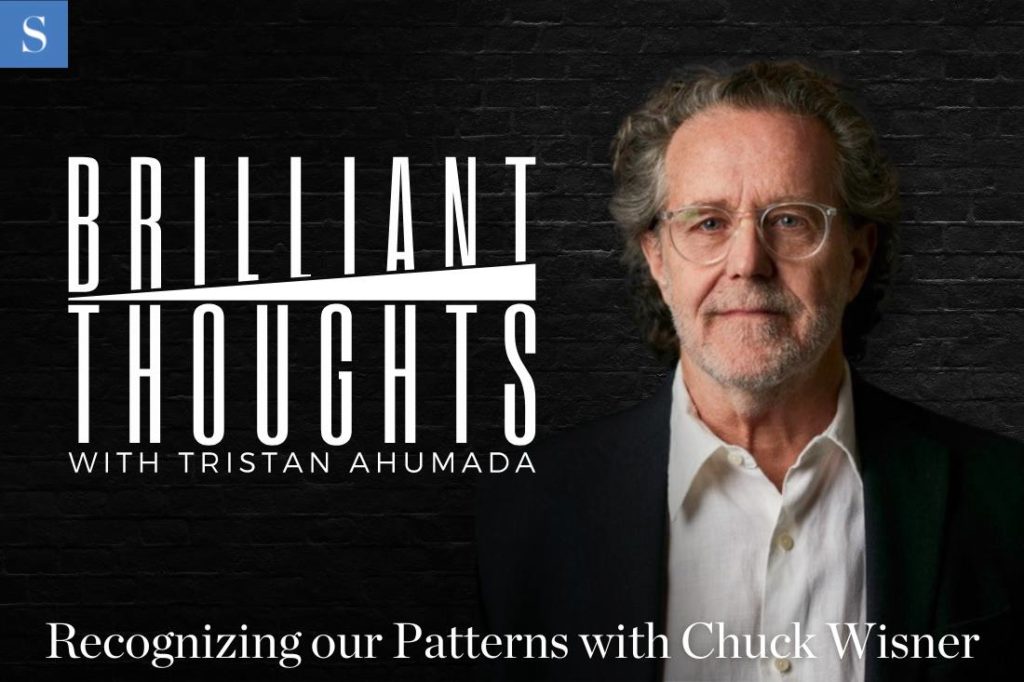Our identities and lives thrive on stories. But these are stories that we adopt through our families, culture and experiences, which can make them self-limiting, Chuck Wisner says. This week on Brilliant Thoughts with Tristan Ahumada, Wisner asserts that our stories are not our truths. Rather, our stories break down into facts, emotions and opinions.
He outlines four questions that can be used to process these stories: What are my desires? What are my concerns? What power issues are at play? And what rules and codes of conduct are shaping my opinions and judgements?
“Authority issues are a huge problem in business,” Wisner says. Leaders often feel like they need to have all the answers, but should feel comfortable being in a constant state of learning. We’ve lost the art of asking questions; we have to rebalance how we advocate and how we inquire, Wisner explains. He suggests that leaders speak last in a meeting, instead of first. Another strategy is asking three questions before making a decision.
Instead of thinking of stories as truth, he suggests thinking about behaviors and thoughts as patterns, which are learned through standards that we have unconsciously adopted. But we can recognize our patterns and work toward changing them.
Learn more about Chuck Wisner at chuckwisner.com, and follow him on Instagram and Twitter @chuck_wisner. His book is called The Art of Conscious Conversations.
Brilliant Thoughts with Tristan Ahumada is no longer releasing new episodes on the SUCCESS Podcast Network, but you can still listen to the full conversation below.






